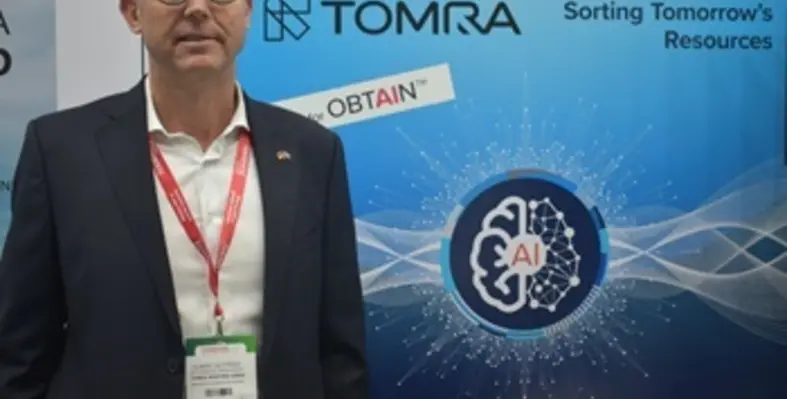With the curtains drawn on another edition of Investing in African Mining Indaba, those who were in attendance are left to reflect on the four frenetic days in Cape Town where embracing positive disruption and seizing positive momentum to ensure Africa's resources can fuel the future needs of the world took centre stage
Anyone who has previously participated in the conference will know of its intensity. Now returning to full-strength in the post-Covid era (with 11,000 registered attendees), the annual show attracts the very best of mining community, ensuring that most on site in Cape Town commit a large proportion of their waking time networking and in meetings in and around the CTICC. Moreover, any minute not set aside for pre-planned negotiations is invariably committed to sweeping the extensive exhibitor floor to discover new technology and form new connections, or is taken up in the numerous panel sessions, discussions and presentations featuring industry experts wrestling with the year's theme - the 2024 edition being 'Embracing the power of positive disruption: A bold new future for African mining'. Hosted in a country plagued by load shedding that continues to inhibit businesses and stifle economic growth across most sectors (an issue shared by many across the continent), Mining Indaba sought to unpick such pertinent challenges to the mining industry and ensure it is well equipped to make the most of the opportunities open to it in the years ahead.
This intention was apparent from the very start with organisers inviting presidential speakers to take to the stage on the first day, starting with the thoughts of South African President Cyril Ramaphosa. In front of the Mining Indaba faithful, the President took the opportunity to emphasise the need for collaboration between the mining industry and government, before highlighting the enormous potential the continent has in being central to the global clean energy industries. Continuing, President Ramaphosa urged the audience to prioritise discussions around strengthening mining value chains and enhancing beneficiation, before touching on his own Government's efforts for developing the sector, with solving the crippling power challenges residing at number one.
After this speech, Zambian President Hakainde Hichilema also elaborated on his own country's efforts within this space, drawing particular attention to its designs to encourage diversification through its mineral exploration exercise and commitment to making Zambia a reliable investment partner of choice. The Democratic Republic of Congo Prime Minister, Jean-Michel Sama Lukonde, further made note of this and highlighted the investment opportunities in his country's mining sector.
Meanwhile, the starting pistol on the technical panel sessions was fired by Fabiana Di Lorenzo, senior director of impact, innovation and credibility at the Responsible Minerals Initiative, who hosted an intriguing discussion around whether Africa can play a meaningful role in the emerging market and the value the continent can contribute to the industrialisation of components.
Topics such as this were fully scrutinised relentlessly across the conference, with the final day largely dedicated to the future in the form of the Young Leaders in Mining Programme which created a forum for the next generation of miners to engage with senior, established leaders. The final session of this was led by Mustak Ally, head of skills development at the Minerals Council of South Africa, and considered the changing nature of work in line with the rise of artificial intelligence (AI) and the increasing pace of digitisation and automation. While acknowledging such tools are not new in the industry, the panellists professed the onset of Covid had certainly driven them to the fore and this has created fresh concerns around job displacement, community wellbeing, the skills gap and more. However, most of the panellists agreed that such technology advancements must be embraced as they will not be fading away and it is in the nature of the industry to adapt and progress (Julie Courtnage, ED at Mandela Mining Precinct, proved this point by jovially asking the youthful audience how many of them had sent a fax for example, with few hands being raised in response). Therefore, it is imperative the miners of tomorrow do not fear the continued development of AI and its cousins but grow with it. Indeed, Africa has a unique opportunity here with its rapidly expanding, youthful population, with one panellist describing that if the continent is able to marry this new technology with the emerging human talent, Africa could become a talent hub of the future for the rest of the world.
Making headlines in Cape Town
Away from the technical discussion taking place on the various stages around the CTICC and outside the meeting rooms on the floors above, the pride of the conference was at its heart, on the exhibitor floor. The clamorous hum of discussion remained in the background even up to the last minute of the show (even if it had hushed somewhat) as attendees got to grips with the numerous exhibiting organisations occupying the space.
During the show, there were a  number of breaking announcements made by participating companies, who seized the opportunity to launch new endeavours and solutions on African soil. This included the likes of TOMRA Mining, which unveiled its new deep learning solution for high-capacity ore sorting, an announcement that was later referenced in the aforementioned closing session of the Young Leaders in Mining Programme. "Mining Indaba, one of the most important events in the mining industry, is the perfect platform for us to unveil our revolutionary OBTAIN," remarked Albert du Preez, head of TOMRA Mining. “This is an exciting innovation that marks the beginning of a new era in sensor-based sorting and will enable mining operations to unlock untapped value and extend the life of their mine.”
number of breaking announcements made by participating companies, who seized the opportunity to launch new endeavours and solutions on African soil. This included the likes of TOMRA Mining, which unveiled its new deep learning solution for high-capacity ore sorting, an announcement that was later referenced in the aforementioned closing session of the Young Leaders in Mining Programme. "Mining Indaba, one of the most important events in the mining industry, is the perfect platform for us to unveil our revolutionary OBTAIN," remarked Albert du Preez, head of TOMRA Mining. “This is an exciting innovation that marks the beginning of a new era in sensor-based sorting and will enable mining operations to unlock untapped value and extend the life of their mine.”
Elsewhere, the Atlantic Council's Africa Center used the heightened media attention to launch a three-year programme focused on critical minerals in Africa. A twelve-person task force comprising of various stakeholders and officials will convene on a regular basis to examine the role and potential of African minerals in various critical supply chains, consider ways to achieve greater inclusion of African nations and suppliers and explore how to galvanise the private sector.
The Global Reporting Initiative also took advantage of the spotlight by launching the GRI Mining Standard on the side-lines of the conference. As the first global standard to holistically address the sustainability impacts of the mining sector, it reflects broad demand for transparency and enables any mining company to use a common set of metrics to report their impacts. Carol Adams, chair of GRI’s Global Sustainability Standards Board (GSSB), remarked, "We need detailed, consistent and globally comparable reporting on the most significant impacts of mining companies, which this new GRI Standard will deliver. Importantly, it will help mining organisations to improve how they communicate with key stakeholders on the issues that matter most to build trust with communities.”
 Also making headlines was leading heavy equipment manufacturer Komatsu for signing a multi-year deal with Williams Racing to become the principal partner of the British team from the start of the 2024 FIA Formula One World Championship (F1) season. The move, revealed while the company featured in Cape Town and proudly displayed across its booth, will ensure the company's logo and branding will feature prominently on the 2024 Williams Racing livery, as well as the team’s overalls and kit.
Also making headlines was leading heavy equipment manufacturer Komatsu for signing a multi-year deal with Williams Racing to become the principal partner of the British team from the start of the 2024 FIA Formula One World Championship (F1) season. The move, revealed while the company featured in Cape Town and proudly displayed across its booth, will ensure the company's logo and branding will feature prominently on the 2024 Williams Racing livery, as well as the team’s overalls and kit.
It is difficult to walk away from any Mining Indaba conference and not harbour a certain sense of hope for the future of the industry. While there are many challenges and stumbling blocks that must be navigated in the years ahead, there was a palpable enthusiasm from attendees to tackle these and ensure the continent (along with all its inhabitants) can fully live up to its potential and, especially, maximise the benefits that would be won by placing it at the heart of the global energy transition. With the organisers already promising the return of a 'bigger and better show' next year, it will be intriguing to assess what progress has been made when this rolls round, whether the 2024 message of embracing the power of positive disruption was actually taken on board by the community, and whether a bold new future for African mining was truly begun this year.












